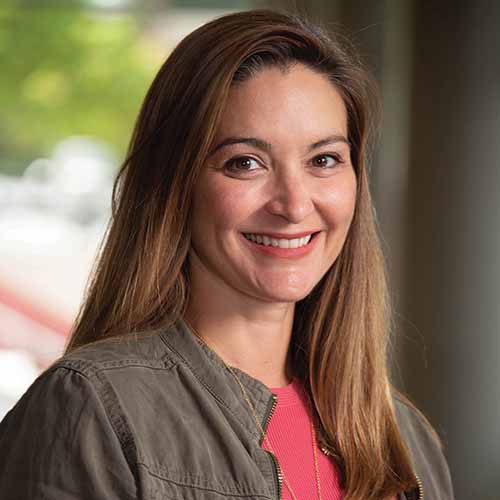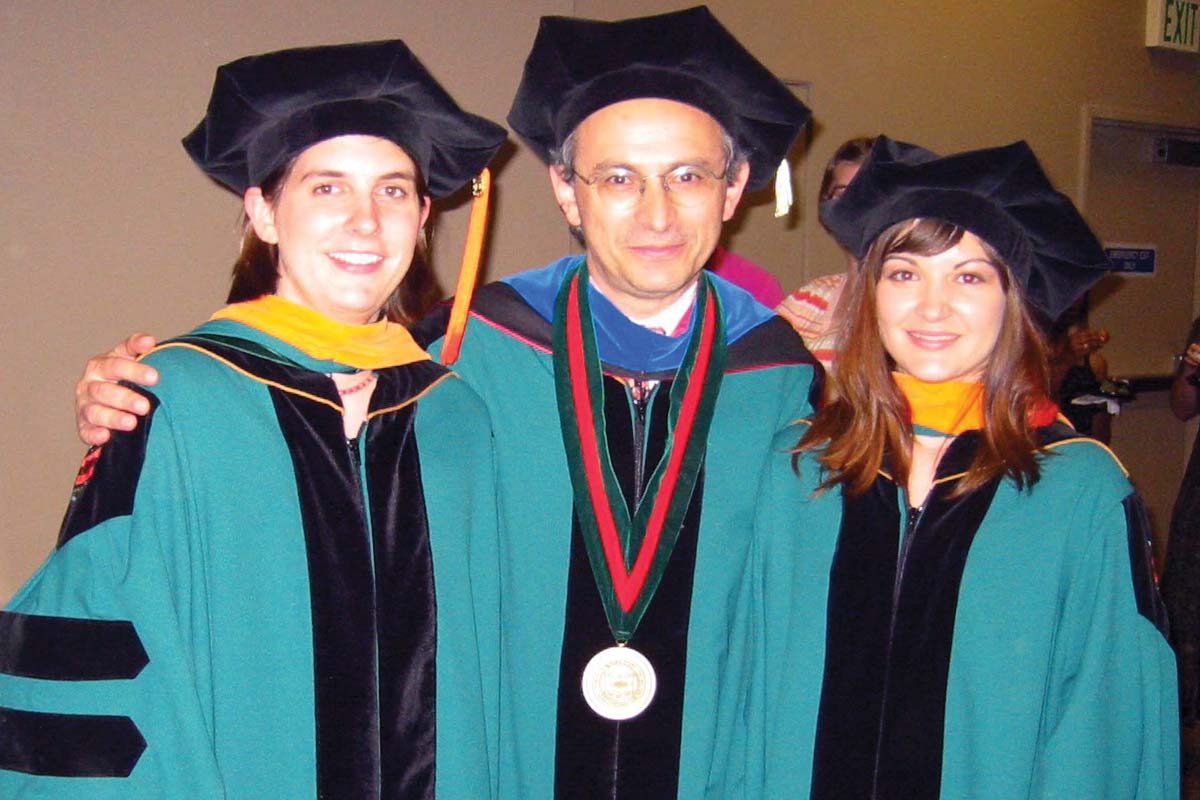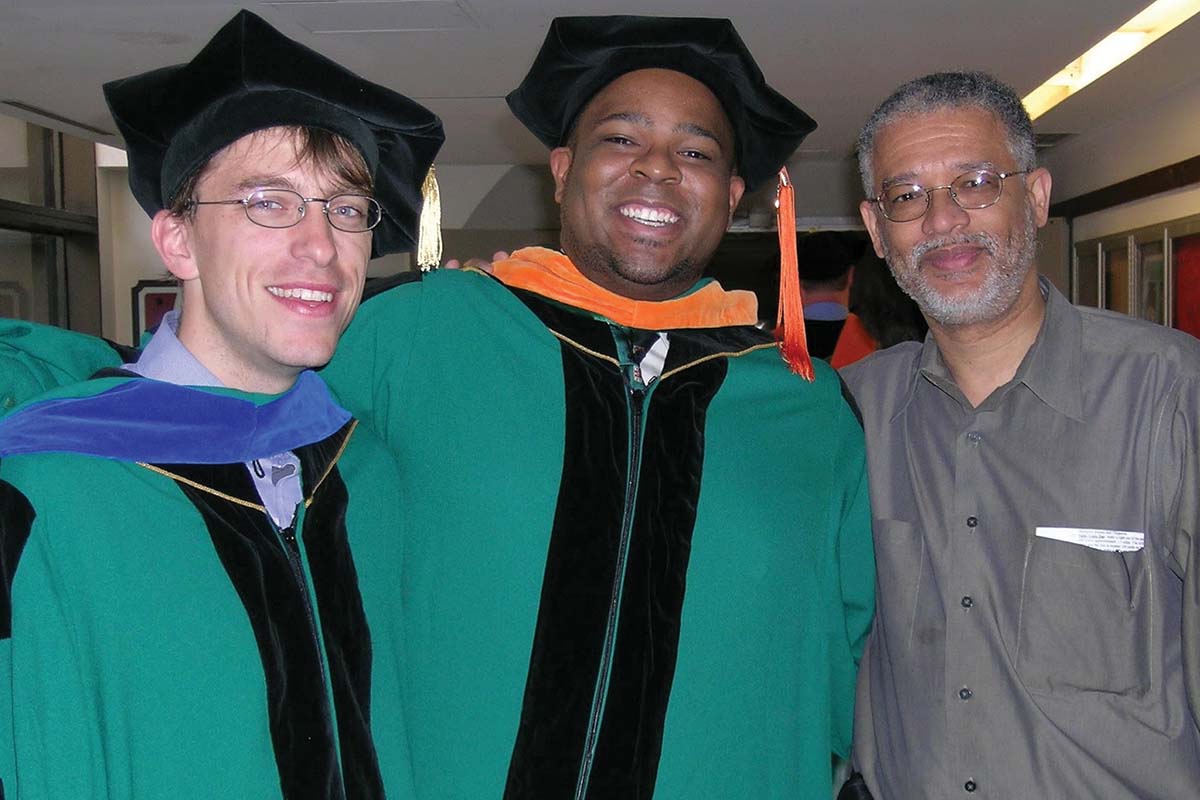From sensors to society
For Jamie Payton, the more challenging parts of computer science problems are sometimes the ‘people parts’

Jamie Payton, who earned a master’s in computer science in 2004 and a doctorate in 2006 from WashU, is dean of the Ying Wu College of Computing at the New Jersey Institute of Technology. Previously, she was chair of the Computer and Information Sciences Department at Temple University. Payton also is director of the STARS Computing Corps and co-principal investigator and director of broadening participation in computing and outreach for the INVITE Institute.
How did you get interested in computer science and engineering?

- Hometown: Liberty Mounds, Oklahoma
- Degrees: Computer Science & Engineering, MS 2004, PhD 2006
- Adviser: Catalin Roman, the Harold B. and Adelaide G. Welge Professor of Computer Science and chair of the Department of Computer Science & Engineering from 1997-2010
Unlike sensors that we could drop into an environment, now it's people who move the sensors.”
— Jamie Payton
I grew up in a very small, rural area, and there weren't a lot of opportunities in my hometown. I thought I wanted to be a lawyer because I liked solving problems, finding evidence and presenting a case to people, so I enrolled in a paralegal program. I hated it. I was so bored! But across the hall there was a computer programming class. That sounded interesting to me, so I enrolled in a digital design program the next semester.
After that initial exposure, what drew you to computer science research?
I studied computer science at the University of Tulsa, where I got involved in undergraduate research. My faculty mentor, Rose Gamble, who is also a WashU alumna, introduced me to the world of academic research, and it combined all the things I loved — solving problems, looking for evidence, communicating with others, being part of a team and working on things that could potentially make a difference in the world.
What problems caught your interest?
I started working on protocols for mobile ad hoc networks. The idea was that you could drop small, battery-powered sensors with wireless communication capabilities anywhere in the world, they could form a mesh network to exchange information. That would be useful for things like disaster recovery, where connections may not be available, or wildlife monitoring, where you lack infrastructure.
How has your focus shifted?
Over time, I realized the more challenging parts of problems are sometimes the people parts. As mobile phones and smart watches have become widely used and accessible, they have replaced the sensors I originally started working on. But, unlike sensors that we could drop into an environment, now it's people who move the sensors.
If you want to solve a problem, you could deploy your question across a network of volunteers and ask them to use sensors on their phones to contribute information. This field is called participatory sensing or crowd sensing, and that's what my work evolved into. The challenge is coordinating people and making sure they’re giving quality data at the location and time you need it.
It's about understanding what the core problem is and why it's important, evaluating approaches that we can use to solve it, collecting data and reflecting back on our solution and refining it.”
— Jamie Payton
Your role as dean is also very people-focused. How does your administrative work dovetail with your work as a researcher?
As I’ve grown in my career, I’ve thought a lot about the people involved in solving problems. Research has shown more diverse teams have improved outcomes, so it's important that we have people from different backgrounds and experiences developing computing solutions.
For the past eight to 10 years, my research has primarily focused on broadening participation in computing, with research on creating more inclusive approaches to computer science education, and developing ways to increase representation of women, Black and Hispanic students. The STARS Computing Corps and INVITE AI Institute, where I have leadership roles, are aligned with this need to broaden participation in computing so that everyone has an opportunity to participate in the tech workforce.
As dean, I'm implementing best practices for computer science education. An important part of my job is to look for creative and innovative ways to prepare all students to meet the challenges of society and the workforce in the future.

Jamie Payton (right) with doctoral adviser Catalin Roman (center), former chair of computer science & engineering, and lab mate Christine Julien, who is now chair of the Department of Computer Science at Virginia Tech and remains a close friend and collaborator of Payton’s.
Was it hard to make the transition from research to administrative work?
Moving into administration did not feel like a big jump because a lot of it overlaps with what I love about research. One of my favorite parts about collaborative research has been connecting people across disciplines with complementary skills and expertise who can come together to solve an even bigger problem. A large part of what I do as a dean is exactly that – bringing people together, connecting people with different problems to the resources they need to solve them.
We can and should be applying the skills we’ve honed as researchers to administrative positions. Part of what we want to do is to achieve an ambitious goal. That's true in research and in administration. It's about understanding what the core problem is and why it's important, evaluating approaches that we can use to solve it, collecting data and reflecting back on our solution and refining it. All those things I loved about research are integrated in the dean position.
What advice do you have for students interested in computer science?
Computer science is not just one thing. If you love solving problems, if you love having an impact, you can find a way to do that through computer science.

Richard Souvenir (center), professor in the Department of Computer and Information Sciences and vice provost for strategic initiatives at Temple University and Payton’s husband, who earned bachelor’s, master’s and doctoral degrees from the Engineering school in 2001, 2003 and 2006, respectively; with his father (right), and Robert Pless (left), former WashU professor of computer science & engineering now at George Washington University, at Souvenir’s graduation. (Courtesy photo)
